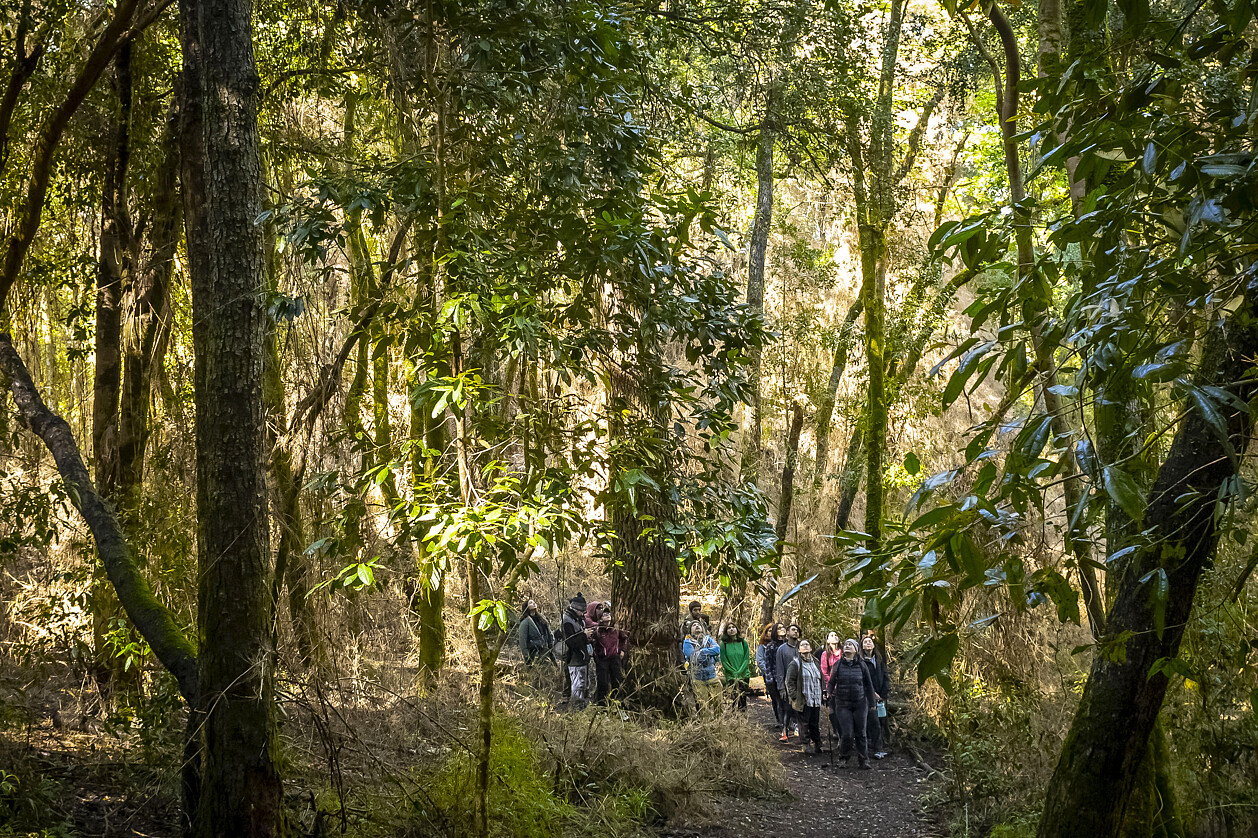The Biocultural Legacy of the Campus Naturaleza UdeC Project: A Year of Achievements and Challenges

In May 2023, the University of Concepción launched the ambitious Campus Naturaleza UdeC project, a pioneering initiative aimed at implementing nature-based solutions in collaboration with the local community and scientific knowledge. As the first year of this project concludes, it is timely to reflect on the achievements, challenges, and future prospects of this initiative.
The Chilean context presents a critical scenario for biodiversity conservation. Urban pressure, deforestation, and climate change have severely impacted our ecosystems, especially the deciduous forests of central-southern Chile. In this regard, Campus Naturaleza UdeC emerges as an innovative and necessary response, addressing in an integrated manner in situ and ex situ conservation, ecological restoration, biocultural education, and the holistic health of individuals.
The project has witnessed a complex conservation landscape. Concepción’s coastal wetlands and remnant deciduous forests, vital ecosystems that host rich biodiversity, have been under constant threat. Our response has been to protect these ecosystems to ensure their persistence. In parallel, we have taken decisive steps in ex situ conservation, with the implementation of the first living collection of threatened Nothofagus trees, which will be launched this year. This effort not only preserves critical species, but also acts as a vital genetic bank for future restorations.
A central pillar of our work has been the engagement with local communities. From the beginning, we have understood that effective and long-term conservation is only possible through close collaboration with those who inhabit and depend on these ecosystems. Through citizen science and biocultural education programs, we have involved communities at every stage of the process, strengthening their connection and commitment to nature. This collaboration has generated a sense of belonging and shared responsibility, crucial for the long-term success of the project. This connection with the community not only strengthens the project but also ensures its sustainability in the long run.
The success of Campus Naturaleza UdeC can also be attributed to its inclusive and transparent governance model. This model has enabled participatory and effective decision-making, ensuring that the voices of all stakeholders are heard and considered. Furthermore, the institutional support of the University of Concepción has been a decisive factor. Our University has not only provided the necessary resources but also offered continuous support and a firm commitment to the project's objectives.
This first year has laid the groundwork for a long-lasting biocultural legacy. As we move forward, we will continue to face challenges, but we do so with the conviction that our actions are building sustainable development for current and future generations. Biodiversity conservation is a shared responsibility, and at the University of Concepción, we are proud to lead this crucial effort.
Campus Naturaleza UdeC is not just a conservation project; it is an initiative that brings communities together, reinforces institutional commitment, and establishes an unprecedented model for the conservation and restoration of our natural heritage.
Dr. Cristian Echeverría Leal
Project Director, Campus Naturaleza, University of Concepción



Leave a Reply
Want to join the discussion?Feel free to contribute!